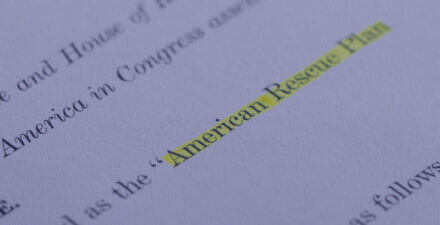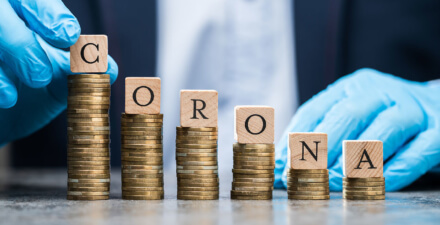More than 200 economists to Congress: Seize “historic opportunity to make long-overdue public investments” to boost economic growth
Led by Hilary Hoynes, Trevon Logan, Atif Mian, William Spriggs, statement implores Congress to “invest in a prosperous and equitable future”
FOR IMMEDIATE RELEASE
CONTACT:
Erica Handloff, 202-746-5747
ehandloff@equitablegrowth.org
WASHINGTON – Today, the Washington Center for Equitable Growth released a statement urging Congress to prioritize “robust and sustained investment in physical and care infrastructure along with science and technology to solve the problems of the 21st century.”
The statement—led by Hilary Hoynes, professor of public policy and economics at the University of California, Berkeley; Trevon Logan, professor of economics at The Ohio State University; Atif Mian, professor of economics, public policy, and finance at Princeton University; and William Spriggs, professor of economics at Howard University—is endorsed by more than 200 scholars, including one former Vice Chairman of the Board of Governors of the Federal Reserve System, one former U.S. Labor Secretary, one former chair of the White House Council of Economic Advisers, and two former chief economists at the U.S. Department of Labor, among others.
Endorsers of the statement ask for a “clear break from the recent history of declining public investment,” emphasizing that “the private sector alone is not capable of making the large-scale investments needed to address the overlapping structural challenges currently facing the country.” Those challenges include the climate crisis, structural racism and discrimination against Black, Latinx, and Indigenous communities in the labor market and throughout the U.S. economy, and the lack of 21st century care infrastructure—leaving families, especially those led by women, struggling to balance caregiving obligations with work.
Research shows decades of declining public investment is damaging to U.S. communities and the economy as older infrastructure deteriorates and economic and social challenges go unaddressed. Such disinvestment leads to less knowledge creation, fewer good jobs, and slower employment growth in new sectors, placing the United States at an extreme competitive disadvantage in relation to other countries.
With the cost of borrowing at record lows, the signers call on Congress to seize this opportunity to reassert U.S. global leadership in the investment in technologies and physical and care infrastructure needs of the future.
A full list of signers is available here.
Following is the full text of the statement:
Dear Senate Majority Leader Schumer, Senate Minority Leader McConnell, Speaker Pelosi, and House Minority Leader McCarthy,
With the recently passed rescue package now providing additional relief and stimulus to families, policymakers have an historic opportunity to make long-overdue public investments in physical and care infrastructure to boost economic growth and productivity.
The share of our GDP invested in federally-funded research and development has fallen from around 2% in 1960 to just 0.6% today; this means less knowledge creation, fewer good jobs, and a harder time boosting employment in new sectors. Research—and common sense—tell us that this disinvestment is damaging for U.S. communities and our economy as older infrastructure depreciates and economic and social challenges go unaddressed.
This government disinvestment has also placed the United States at an extreme competitive disadvantage in relation to other countries. Among OECD countries, the United States ranks 22nd in government investment as a percentage of GDP. And female labor force participation has been largely in decline since 1999, in contrast to rising rates in other OECD countries that invest more heavily in care infrastructure.
In addition to federal research, physical infrastructure needs must be addressed. The private sector alone is not capable of making the large-scale investments needed to address the overlapping structural challenges currently facing the country, including:
- The climate crisis, which poses an existential threat to humans across the globe, as well as largely unaccounted-for risks to our economy;
- Structural racism and discrimination against Black, Latinx, and Indigenous communities in the labor market and throughout the U.S. economy; and
- The lack of 21st century care infrastructure, leaving families struggling to balance caregiving obligations with work and thus hampering labor force participation, particularly for women.
Investments alone will not correct structural racism. But, if designed correctly, a wide range of infrastructure investments in these areas can spur strong, stable, and broad-based economic growth by addressing long-standing racial and income inequality, driving clean energy, increasing consumer and commercial demand, supporting work, creating jobs, improving worker productivity, reducing economic uncertainty, and jumpstarting a new era of innovation.
With the cost of borrowing at record lows, now is the time for the United States to reassert global leadership in the investment of technologies and physical and care infrastructure needs of the future.
The next spending package should include robust and sustained investment in physical and care infrastructure along with science and technology to solve the problems of the 21st century. We need a clear break from the recent history of declining public investment. Let us come together as a nation and invest in a prosperous and equitable future.
Signed,
Dr. Hilary Hoynes
Professor of Public Policy and Economics, University of California, BerkeleyDr. Trevon Logan
Professor of Economics, The Ohio State UniversityDr. Atif Mian
Professor of Economics, Public Policy and Finance, Princeton UniversityDr. William Spriggs
Professor of Economics, Howard UniversityThe opinions expressed here reflect the personal views of the signees and should not be understood to reflect the views of any institutions with which they are affiliated.
###
The Washington Center for Equitable Growth is a nonprofit research and grantmaking organization dedicated to advancing evidence-backed ideas and policies that promote strong, stable, and broad-based economic growth. For more information, see www.equitablegrowth.org and follow us on Twitter and Facebook @equitablegrowth.




